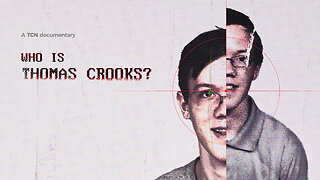Premium Only Content

In Defence of British Colonialism
Until very late, European colonialism appears to have been highly legitimate and for good reasons. Millions of people moved closer to areas of more intensive colonial rule, sent their children to colonial schools and hospitals, went beyond the call of duty in positions in colonial governments, reported crimes to colonial police, migrated from non-colonized to colonized areas, fought for colonial armies, and participated in colonial political processes—all relatively voluntary acts. Indeed, the rapid spread and persistence of Western colonialism with very little force relative to the populations and geographies concerned is prima facie evidence of its acceptance by subject populations compared to the feasible alternatives. The “preservers,” “facilitators,” and “collaborators” of colonialism, as Abernethy shows, far outnumbered the “resisters,” at least until very late: “Imperial expansion was frequently the result not just of European push but also of indigenous pull.” In Borneo, the Sultan of Brunei installed an English traveler James Brooke, as the rajah of his chaotic province of Sarawak in 1841. Order and prosperity expanded to such an extent that even once a British protectorate was established in 1888, the Sultan preferred to leave it under Brooke family control until 1946.
Sir Alan Burns, the governor of the Gold Coast during World War II, noted that “had the people of the Gold Coast wished to push us into the sea there was little to prevent them. But this was the time when the people came forward in their thousands, not with empty protestations of loyalty but with men to serve in the army . . . and with liberal gifts to war funds and war charities. This was curious conduct for people tired of British rule.” In most colonial areas, subject peoples either faced grave security threats from rival groups or they saw the benefits of being governed by a modernized and liberal state. Patrice Lumumba, who became an anti-colonial agitator only very late, praised Belgian colonial rule in his autobiography of 1962 for “restoring our human dignity and turning us into free, happy, vigorous, and civilized men.” Chinua Achebe’s many pro-colonial statements, meanwhile, have been virtually airbrushed from memory by anti-colonial ideology. The few scholars who take note of such evidence typically dismiss it as a form of false consciousness.
The failure of anti-colonial critique to come to terms with the objective benefits and subjective legitimacy of colonialism points to a third and deeper failure: it was never intended to be “true” in the sense of being a scientific claim justified through shared standards of inquiry that was liable to falsification. The origins of anti-colonial thought were political and ideological. The purpose was not historical accuracy but contemporaneous advocacy. Today, activists associate “decolonization” (or “postcolonialism”) with all manner of radical social transformation, which unintentionally ties historic conclusions to present-day endeavors. Unmoored from historical fact, postcolonialism became what Williams called a metropolitan flaneur culture of attitude and performance whose recent achievements include an inquiry into the glories of sadomasochism among Third World women and a burgeoning literature on the horrors of colonialism under countries that never had colonies.
This third failure of anti-colonial critique is perhaps most damaging. It is not just an obstacle to historical truth, which itself is a grave disservice. Even as a means of contemporary advocacy, it is self-wounding. For it essentially weaponizes the colonial past, as the gradually imploding postcolonial South African state’s persecution of Helen Zille shows. “What a meta-narrative of anti-colonial sentiment can render invisible are ways in which people made claims on new possibilities without deploying either anti- or pro-colonial idioms,” Englund writes in his study of colonial-era newspapers in Zambia. “To devote all scholarly attention to the question of how different actors during this period sought to end colonial rule is to succumb to a limiting meta-narrative of anti-colonialism, one that allows no conceptual space between colonial and anti-colonial agendas, and thereby keeps other possibilities inaccessible to the scholarly and moral imagination.”
Follow on Twitter: https://twitter.com/BasedCongo
Follow Professor Gilley on Twitter: https://twitter.com/BruceDGilley
Follow Charlie Kirk on Twitter: https://twitter.com/charliekirk11
#BruceGilley #CharlieKirk #BritishEmpire
-
 54:52
54:52
Belgian Congo
7 months agoInterview avec Monsieur Philippe Makasi Bondo: Voir un Congo nouveau, prospère, sécurisé et soutenu
581 -
 LIVE
LIVE
StoneMountain64
3 hours agoCall of Duty Black Ops 7 Gameplay LAUNCH DAY
198 watching -
 18:15
18:15
Clintonjaws
4 hours ago $2.98 earnedCNN Audience Shocked By Dem's Slanderous Comments At Trump
13.3K13 -
![MAHA News [11.14] - Govt War on Small Ranchers, GLP-1 Craze, Hemp Ban, Mercury out of Vaccines](https://1a-1791.com/video/fww1/f2/s8/1/i/X/E/z/iXEzz.0kob-small-MAHA-News-11.14.jpg) LIVE
LIVE
Badlands Media
11 hours agoMAHA News [11.14] - Govt War on Small Ranchers, GLP-1 Craze, Hemp Ban, Mercury out of Vaccines
227 watching -
 1:23:17
1:23:17
The Quartering
4 hours agoTucker Reveals FBI Coverup For Trump Assassin, Walmart CEO Quits & Tim Pool Unleashes
45.2K34 -
 34:23
34:23
Tucker Carlson
8 hours agoWho Is Thomas Crooks?
321K464 -
 2:05:33
2:05:33
The Culture War with Tim Pool
18 hours agoDating In The Modern Age DEBATE, Myron Gaines vs Brian Shaprio | The Culture War LIVE Debate
88.4K125 -
 1:10:18
1:10:18
Sean Unpaved
4 hours agoTreVeyon Henderson Scores 3 TD's As Patriots DOMINATE Jets! | UNPAVED
21K1 -
 1:15:13
1:15:13
Lara Logan
12 hours agoANIMALS UNDER ASSAULT: Vet Eva DeCozio On Pet Vaccines & Animal Sexual Abuse | Ep 44 | Going Rogue
28.7K6 -
 1:00:06
1:00:06
Rebel News
4 hours agoOstrich vigil update, Carney on pipeline debate, OneBC fights land grabs | Rebel Roundtable
22.6K6